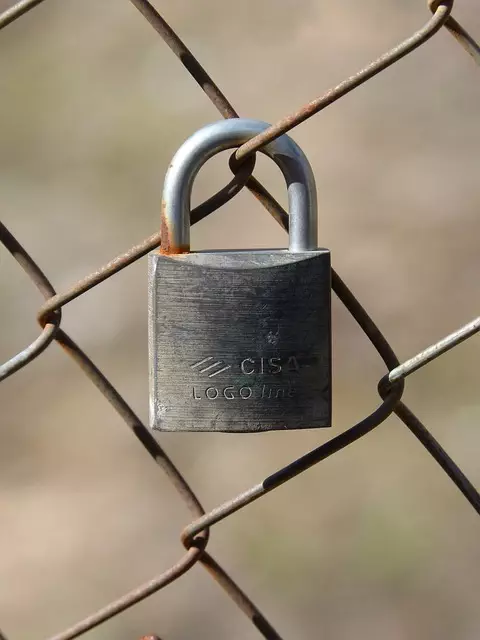Kratom, a psychoactive plant from Southeast Asia that interacts with opioid receptors in the brain, has emerged as a controversial figure in addiction treatment, particularly for managing withdrawal symptoms and cravings associated with opioid addiction. In Louisiana, the legal status of kratom is complex; while it's not explicitly banned at the federal level, individual states like Louisiana can impose restrictions. As such, individuals must be aware of the specific laws regarding kratom possession to avoid legal issues. The potential of kratom as a harm reduction tool or aid in detoxification is recognized but should be weighed against its risk for dependency and withdrawal. The Substance Abuse and Mental Health Services Administration (SAMHSA) advocates for more research to determine kratom's efficacy and safety. In Louisiana, as of early 2023, the possession of kratom remains legal, though its status is subject to change due to federal control of its active alkaloids under the Analogue Act. This creates a complex regulatory environment that affects access and experiences with kratom. Users and policymakers must stay informed about legislative changes, as shifts in federal or state policy could rapidly alter kratom's legal status. It is crucial for anyone considering kratom for addiction treatment to consult healthcare professionals and monitor updates on its legal situation, given the substance's potential benefits and risks.
explored through personal narratives and legal considerations, this article delves into the potential of kratom as a tool for addiction treatment and recovery, particularly within Louisiana’s evolving legal landscape regarding the possession of kratom. We explore its therapeutic effects and how it may aid in overcoming substance abuse, providing a balanced view of its role in recovery journeys against the backdrop of state legislation.
- Understanding Kratom's Role in Addiction Treatment and Recovery: A Comprehensive Overview
- The Legal Landscape of Kratom Use and Possession in Louisiana: Implications for Treatment and Recovery
- Personal Journeys: Real Stories of Kratom Aid in Overcoming Substance Abuse in the Context of Louisiana's Laws on Kratom Possession
Understanding Kratom's Role in Addiction Treatment and Recovery: A Comprehensive Overview

Kratom, a plant originating from Southeast Asia, has garnered attention in the realm of addiction treatment and recovery due to its potential therapeutic effects. Mitragyna speciosa, commonly known as kratom, contains compounds that can interact with the brain’s opioid receptors, offering both stimulant and sedative properties, which may help manage withdrawal symptoms and cravings associated with opioid addiction. The possession of kratom in Louisiana, like in many other states, exists within a complex legal framework that requires clarification. While the federal government has not banned kratom outright, its legality varies at the state level, with some states, including Louisiana, imposing restrictions on its use and possession. It’s crucial for individuals seeking to incorporate kratom into their recovery journey to be well-informed about their local laws to avoid legal repercussions.
In addiction treatment, kratom is often considered as a potential harm reduction tool or a supplementary aid in managing symptoms during detoxification. However, its use is not without controversy and should be approached with caution. The Substance Abuse and Mental Health Services Administration (SAMHSA) has highlighted the need for further research to understand kratom’s efficacy and safety profile fully. This cautious approach is essential, as kratom can also lead to dependency and withdrawal symptoms, which are concerning for those recovering from addiction. The scientific community continues to explore the nuanced effects of kratom, with ongoing studies aimed at elucidating its role in recovery. Prospective patients and healthcare providers should stay informed about the evolving legal status of kratom, as well as its potential benefits and risks, to make informed decisions that support sustained recovery efforts.
The Legal Landscape of Kratom Use and Possession in Louisiana: Implications for Treatment and Recovery

In Louisiana, the legal status of kratom has been a subject of debate and legislative attention. As of the knowledge cutoff in 2023, kratom is not explicitly scheduled as a controlled substance under state law; however, this has led to a complex regulatory landscape. The alkaloids found in kratom, mitragynine and 7-hydroxymitragynine, are scheduled substances under the federal Analogue Act, which indirectly affects the legal interpretation of kratom possession and sale within Louisiana. This federal scheduling can complicate efforts to regulate and study kratom’s effects for treatment and recovery from addiction. Users and advocates have pointed out that this regulatory ambiguity can create inconsistencies in law enforcement practices, potentially impacting those who seek to use kratom as part of their recovery journey. It is crucial for individuals considering the use of kratom for addiction treatment in Louisiana to stay informed about the evolving legal landscape, as changes at either the state or federal level could significantly alter its availability and legality. This uncertainty underscores the need for careful consideration by policymakers to ensure that any regulations support the well-being of individuals recovering from addiction while also safeguarding public health. Users should be aware of the current legal status in their jurisdiction and consult with healthcare professionals when integrating kratom into their treatment plans.
Personal Journeys: Real Stories of Kratom Aid in Overcoming Substance Abuse in the Context of Louisiana's Laws on Kratom Possession

Louisiana’s stance on kratom has been a subject of debate, with state laws reflecting the complexities surrounding this botanical substance. As of the knowledge cutoff in early 2023, the possession of kratom in Louisiana is legal, yet it is a controlled substance in several other states and at the federal level. This legal gray area has not deterred individuals across the state from exploring kratom as an alternative to traditional treatments for substance abuse. Personal journeys narrating the aid kratom has provided in overcoming addiction are gaining traction within Louisiana’s communities, offering a glimmer of hope to those entangled in the throes of substance dependence.
One such narrative comes from a resident who, after years of battling opioid addiction, turned to kratom as a means of recovery. The individual recounts how, upon possessing kratom legally within Louisiana’s boundaries, they experienced a significant reduction in withdrawal symptoms and cravings. This person’s story is not isolated; many others have shared similar experiences, highlighting the potential of kratom to serve as a harm reduction tool. These personal accounts, coupled with anecdotal evidence, suggest that for some, kratom has been a pivotal element in their journey toward recovery and a healthier life. However, it is crucial for individuals considering kratom as part of their treatment plan to consult healthcare professionals and stay informed about the evolving legal status of kratom, as well as its potential interactions with other substances.
Kratom has emerged as a topic of significant interest within the context of addiction treatment and recovery, particularly in Louisiana where the legal status of its possession continues to evolve. This article has illuminated the multifaceted role that kratom may play in aiding individuals on their journey to overcome substance abuse, juxtaposing personal narratives with an overview of the current legal landscape governing its use. As we conclude, it is clear that while the scientific community continues to investigate kratom’s efficacy and safety, many in Louisiana are navigating the complexities of its legal possession as part of their recovery strategies. It is imperative for policymakers to consider the experiences shared by those who have found support through kratom, ensuring balanced regulations that protect public health while respecting individual choices in addiction treatment. Future research and legislative action will be key in shaping the role of kratom in Louisiana’s approach to addiction recovery.






